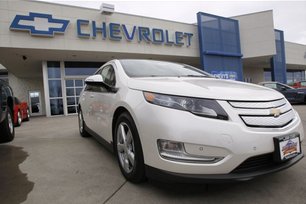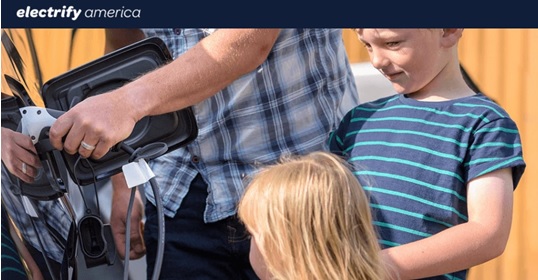Game changing role in auto market: Electrified vehicles are in a good position to play a more important role for automakers and dealers as the U.S. new vehicle market continues to slip. Yesterday, the Federal Reserve reported that U.S. factory output slipped by 0.4% last month, a big drop from  the 1.1% increase in April. The dip in manufacturing ties into increasing production cuts in the auto industry. Analysts warn that more job cuts are in the works if car sales don’t continue declining. General Motors has announced it will extend its usual two-week shutdown this summer to five weeks at some plants in the Midwest. During May auto sales, the auto industry saw a streak of declining sales for five straight months. HybridCars.com reported that as of the end of May, all three electrified vehicle segments were up substantially over the previous year. Year-to-date sales for hybrids were up 10.5%, plug-in hybrids were up 48%, and battery electric vehicles increased by a third over the first five months of 2016. That presents big opportunities for the auto industry to increase electrified vehicle sales and see more profits, and to up the small share that electrified vehicles make of total U.S. new vehicle sales.
the 1.1% increase in April. The dip in manufacturing ties into increasing production cuts in the auto industry. Analysts warn that more job cuts are in the works if car sales don’t continue declining. General Motors has announced it will extend its usual two-week shutdown this summer to five weeks at some plants in the Midwest. During May auto sales, the auto industry saw a streak of declining sales for five straight months. HybridCars.com reported that as of the end of May, all three electrified vehicle segments were up substantially over the previous year. Year-to-date sales for hybrids were up 10.5%, plug-in hybrids were up 48%, and battery electric vehicles increased by a third over the first five months of 2016. That presents big opportunities for the auto industry to increase electrified vehicle sales and see more profits, and to up the small share that electrified vehicles make of total U.S. new vehicle sales.
Lyft goes renewable: Ride-hailing firm Lyft has set a big target over the next eight years – to provide one billion rides per year using electric, autonomous vehicles. Lyft want to see all of the electric rides to eventually be powered by renewable energy. The company will be purchasing renewable energy certificates to offset emissions from the fueling of its electric autonomous vehicles with gasoline. It will take several years for its fleet to be electrified and for renewable energy to make up a large part of energy in the U.S. But as battery-powered technology matures, Lyft expects “the vast majority of the vehicles on our platform will be electric,” the company said.
VW settlement: California Governor Jerry Brown will likely sign a bill that directs Volkswagen to spend a portion of its Electrify America in disadvantaged communities in the state. It’s part of a larger  budget package that Brown had already agreed to sign. Critics of VW’s recent plan said that the first $200 million, of the $800 million to be spent in California from the settlement, could give the German automaker a competitive advantage over other automakers and charging station makers; and it would ignore low-income communities in a state that has become committed to improving air quality in disadvantaged communities that are hardest hit by polluting vehicles such as heavy-duty trucks coming from ports.
budget package that Brown had already agreed to sign. Critics of VW’s recent plan said that the first $200 million, of the $800 million to be spent in California from the settlement, could give the German automaker a competitive advantage over other automakers and charging station makers; and it would ignore low-income communities in a state that has become committed to improving air quality in disadvantaged communities that are hardest hit by polluting vehicles such as heavy-duty trucks coming from ports.



